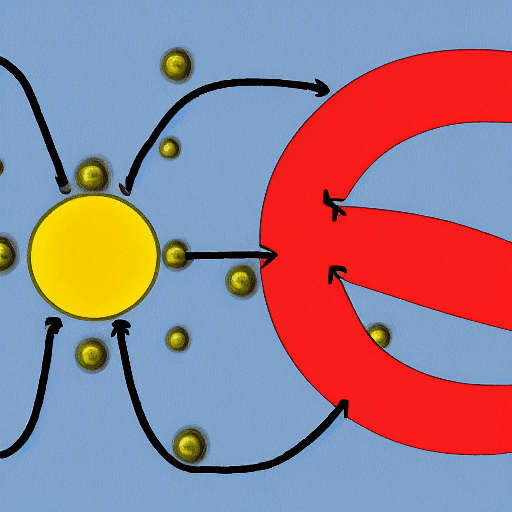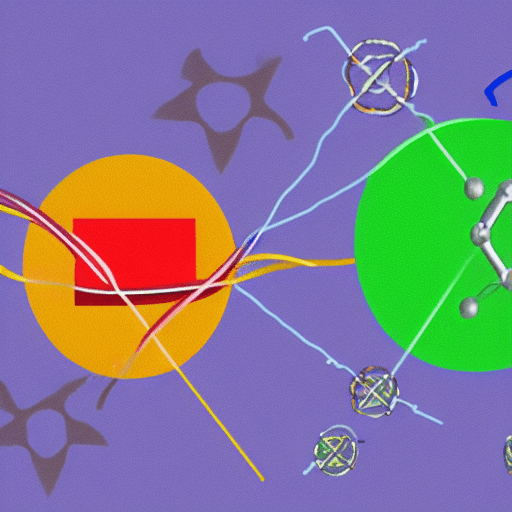What is the difference between oxidation and reduction?
When it comes to chemistry, oxidation and reduction are two of the most important concepts to understand.
But what exactly do they mean?
We will discuss the difference between oxidation and reduction, as well as provide examples of each.
We will also explore some of the benefits of each process.
So if you’re interested in learning more about oxidation and reduction, here we go!

Oxidation is the loss of an electron, and reduction is the gain of an electron.
Explain It To A Child
Oxidation and reduction are two terms used in chemistry. Oxidation is when an atom loses electrons. Reduction is when an atom gains electrons.
In oxidation, a molecule or atom loses one or more electrons, and in reduction, a molecule or atom gains one or more electrons. The term “oxidation state” is used to describe the charge of an atom in a particular molecule relative to how many electrons it has lost or gained.
For example, in molecular oxygen (O2), the oxygen atoms are each in an oxidation state of +2 because they have each lost two electrons. In water (H2O), the hydrogen atoms are each in an oxidation state of +1 because they have each gained one electron.
What is oxidation and what is reduction?
Oxidation and reduction are two terms that are often used in chemistry.
Oxidation refers to the loss of electrons by a molecule, while reduction refers to the gain of electrons.
In most cases, oxidation and reduction occur together in a reaction, where one molecule is oxidized and another is reduced.
This type of reaction is called an oxidation-reduction reaction, or redox reaction. Redox reactions are important in many areas of chemistry, including organic chemistry, electrochemistry, and food science.
In an oxidation-reduction reaction, one molecule loses electrons and becomes more positive, while the other molecule gains electrons and becomes more negative.

The two molecules then swap electrons, resulting in a net transfer of charge from one molecule to the other.
This transfer of charge is what causes the chemical reaction to occur.
Oxidation and reduction can also be thought of as opposite processes.
Oxidation is the loss of electrons, while reduction is the gain of electrons.
When one molecule is oxidized, another must be reduced; otherwise, the overall charge would become imbalanced.
For this reason, redox reactions are sometimes referred to as electron-transfer reactions.
In general, any time there is a transfer of electrons between molecules, it can be classified as a redox reaction.
This includes reactions such as the combustion of fossil fuels, the rusting of iron, and the decomposition of food into nutrients that can be used by cells.
Redox reactions are essential for life as we know it; without them, many essential chemical processes would not be possible.
The difference between oxidation and reduction
Oxidation and reduction are two terms that are often used in chemistry.
They refer to the loss or gain of electrons by an atom.

When an atom loses electrons, it is said to be oxidized. When an atom gains electrons, it is said to be reduced.
In many cases, oxidation and reduction occur together.
- For example, when iron rusts, it is both oxidized and reduced.
- The oxygen in the air oxidizes the iron, and the iron reduces the oxygen.
Oxidation and reduction can also occur separately.
- For example, when a metal corrodes, it is only oxidized.
- The loss of electrons causes the metal to lose its shine and develop a dull appearance.
- In contrast, when metal is polished, it is only reduced.
- The gain of electrons gives the metal a bright, shiny appearance.
What is the difference between oxidation and reduction in organic chemistry?
In organic chemistry, oxidation and reduction refer to the addition or loss of oxygen atoms.

Oxidation occurs when an atom loses electrons, and reduction occurs when an atom gains electrons.
This can happen through a variety of chemical reactions, including oxidation-reduction reactions, hydrolysis reactions, and polymerization reactions.
In general, organic compounds are more likely to be oxidized than reduced.
This is because organic molecules usually contain a preponderance of carbon-hydrogen bonds, which are very stable and difficult to break.
As a result, organic molecules tend to resist oxidation by losing hydrogen atoms instead of oxygen atoms.
However, organic molecules can still be oxidized under the right conditions, and this process can often be used to synthesize new compounds.
Examples of oxidation and reduction
Oxidation and reduction are two important chemical reactions that play a role in many everyday processes.
Oxidation occurs when a molecule loses electrons, while reduction occurs when a molecule gains electrons.
For example, rust is an example of oxidation, as it is the result of iron molecules losing electrons to oxygen molecules in the presence of water.
Similarly, the process of photosynthesis can be considered a type of reduction, as plants take in carbon dioxide and use sunlight to convert it into glucose, which contains more electrons than carbon dioxide.
In general, oxidation and reduction reactions are important for maintaining the balance of electrons in the universe.
Benefits of oxidation and reduction
Oxidation and reduction are essential processes that occur in nature.
Oxidation is the loss of electrons, while reduction is the gain of electrons.
- These reactions are important because they can help to create new substances, break down harmful substances, and release energy.
- Additionally, oxidation and reduction reactions can help to purify water and air, and they can also be used to generate electricity.
Overall, oxidation and reduction reactions play a vital role in keeping our environment clean and our bodies healthy.
Consequently, The difference between oxidation and reduction is one of the most important topics in chemistry, and it is essential for students to understand the difference between these two processes.
Article Sources
Jacks of Science sources the most authoritative, trustworthy, and highly recognized institutions for our article research. Learn more about our Editorial Teams process and diligence in verifying the accuracy of every article we publish.
